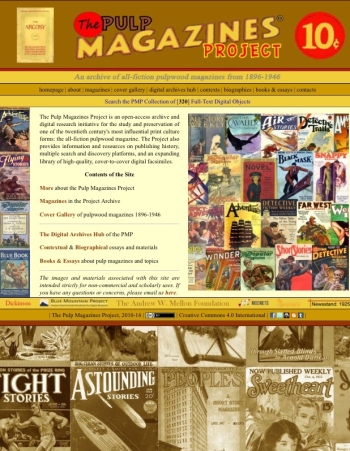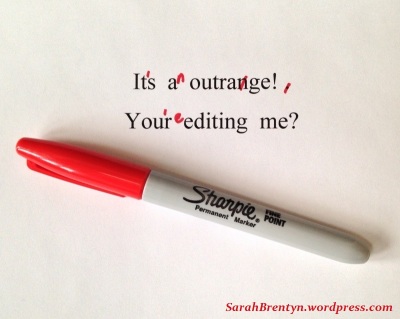I am fascinated by pulp fiction.
But what is it, exactly?
I’d heard of penny dreadfuls, dime novels, and pulp fiction, although I didn’t know much about them.
These cheap magazines and books have a rich history.
Pulp fiction got its name from the pulpy paper it was printed on. It was inexpensive to make and cost very little to buy. How much? Oh, um, something like, I don’t know… A penny and a dime? Yes. And that’s where they got their names.
These were made for the masses. And they were loved. I mean…what was not to love? They were accessible, quick to read, and, maybe most importantly, affordable.
Dime novels (US) and penny dreadfuls (UK) were widely read in the late 19th century. Later, pulp fiction magazines found their way onto shelves, succeeding dime novels and penny dreadfuls but preceding comic books (which some say were just distant relatives of pulp fiction—I can totally see that).
The stories themselves introduced (some) unforgettable characters and were written by (some) well-known authors. Among them, Ray Bradbury, Agatha Christie, F. Scott Fitzgerald, Dashiell Hammett, H.P. Lovecraft, Upton Sinclair, Mark Twain, H. G. Wells, and Tennessee Williams. According to Mashable, Raymond Chandler’s novel The Long Goodbye started out as a pulp fiction book. (This one is sitting on my bookshelf and I had no idea it began its life as pulp.)
These stories were so popular, publishers continued to print them during The Depression and WWII era. Literacy was on the rise as well as a desire to escape “real life”.
But escapism doesn’t have to be well-written.
I’m not going to dump on the stories but I will say they weren’t known for their breath-taking writing. They are not “literary”. Far from it. They’re jam-packed with story. That’s pretty much it. It’s non-stop action, good guys vs. bad guys stories. Okay, that’s oversimplifying it a bit but you get the gist.
So why am I all fired up about this?
It’s appealing to me on many levels.
I’ve had a strangle-hold on myself for months. I enjoy writing on my fiction site, Lemon Shark Reef, because the restrictions I’ve placed on myself don’t apply as much (if at all) over there. I love that site. *swoon*
But I’m all over the place. Which, on one hand, is a really good thing. I love writing from prompts, challenging myself to a set word count, trying new voices, creating new characters. I have so much variety in my short fiction—it’s kind of awesome.
However. When I sit down with any decent amount of time, I just stare. I don’t know what to write. Not because I don’t have any ideas but because I have too many. I also have all that fab flash I could expand into a (longer) short story. Or even a book.
I should revel in the fact that all those ideas are just floating around waiting to be grabbed.
Should. It’s not where I’m living right now.
My post about getting the hell out of my own way? Yeah. Really? How?
By placing more limits on myself.
You heard me.
I had a frickin’ epiphany.
Amidst the chaos of my life, I need some order. (If you had suggested even a few years ago that I should let someone tell me what to write and how to write it, I would have laughed in your face. I know. I’m rude.) Yet, here I am. Inviting it in.
Please, for the love of all that is good and covered in chocolate, someone tell me what to do.
Ah! A formula. There’s a popular blueprint by Lester Dent. (Which is such a cool name, he could have been his own character in a pulp. Just saying.) So why don’t I just go ahead and follow that, write something, and get back to my life.
I tripped across this great post on Twitter by Icy Sedgwick, who writes pulp fiction. I was intrigued. She says we should try writing this. Hmm…
Pulp fiction is so far out of my comfort zone I’m going to need a passport.
But, hey, I already have a map, right? So I can’t get lost. And, when I get there, I’ll learn the language through the immersion method, explore the famous landmarks (there are tons of sites with archived pulp).
I might love the land of Pulp! Eh. I might not. But I will have an adventure and, right now, that’s just what I need. Ditch the perfectionist and bring on the fun, you know?
Pulp was cranked out. Quick and dirty. Tell the story. This would really get you writing a book (or three) in a short amount of time. With much of pulp fiction, it didn’t have to be good, it had to be done.
This genre or type or kind or whatever of writing has the good, the bad, and the ugly of storytelling. Pulp novels were also known as “potboilers” which is a not-very-nice term to describe crappy writing that pays the bills. Some authors have called their own pulp a potboiler, hurling wicked rude literary insults at themselves. Others have said it’s a fun way to practice the craft and, hey, while you’re at it, look at my pulp that’s now a famous book (and movie).
My thoughts?
As far as books go, there is good writing and bad writing in every genre, in self-published as well as traditionally published.
As far as pulp goes, what I’ve found is that there are a lot of articles leading back to Lester Dent’s famous formula and cool historical facts. But what I’m not seeing is a definition. So I’m still stuck, by the end of it all, on my original question: “What IS pulp fiction?”
I’m left with the answer that there isn’t a clear answer. It is its history. It is its formula. It is what it is.
And I want to write it.
How dreadful can a penny dreadful really be? Only one way to find out.
Do you read pulp fiction? Have you read dime novels or penny dreadfuls? Which characters do you know from pulp? (Tarzan doesn’t count. Sorry. Everyone knows Tarzan.)
Are you going to try writing some pulp fiction?






